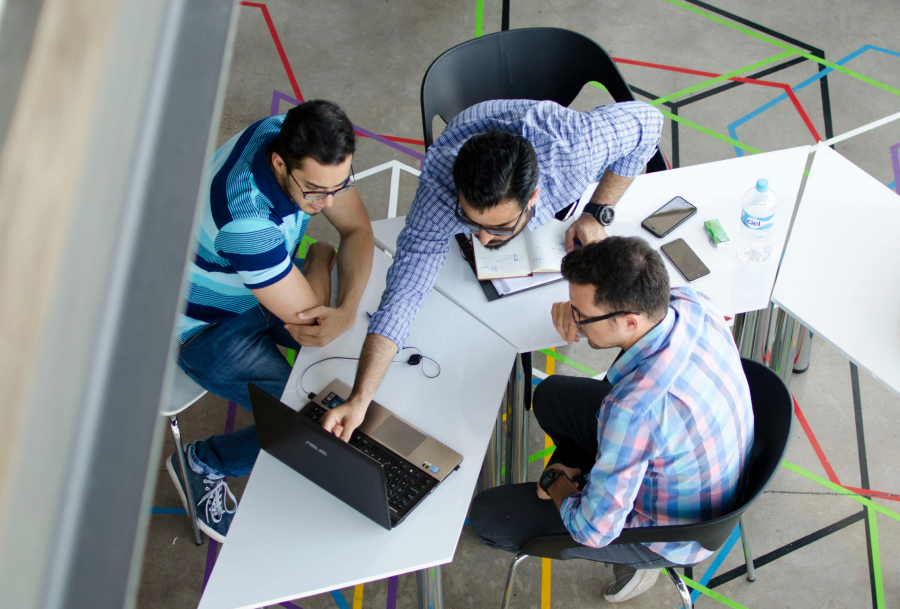Four areas where human work will become increasingly significant in the era of rapid evolution of AI
The continuing emergence of Artificial Intelligence (AI) is affecting and reshaping various industries.

The continuing emergence of Artificial Intelligence (AI) is affecting and reshaping various industries. What kinds of effects will AI have on the work of agile coaches, and what are the areas in which human capacities will become increasingly important? In this article, I explore the potential impact of AI on the role, responsibilities, and skill sets of agile coaches and software engineers in the era of fast technological evolution.
Discussions surrounding AI's impact on agile coaching and software engineering are frequent across various forums in the field. Last summer, in 2023, I attended the XP conference—a premier Agile software development conference that combines both research and practice—where a special track dedicated to AI was featured. During one presentation, which showcased a case of using AI for coding, it became evident that software engineering is facing significant change.
I don't mean to imply that software engineers will find themselves without work; rather, the focus of their work will undergo a profound evolution. Much like in the film ‘Hidden Figures’, where the introduction of computers drastically altered the nature of mathematicians' work, AI will likely empower software engineers to operate with increasing efficiency.
We have already witnessed a brief period during which the introduction of tools like Chat GPT led to a reduction in the workload for software engineers. However, this scenario quickly reversed course, leading to an increase in demand for software engineers—particularly those skilled in developing AI applications.
Across numerous organisations, ongoing development programs are underway to create in-house AI solutions capable of continuous learning within the organisational context. While general AI systems can offer generic solutions, AI solutions tailored to individual companies provide insights derived from the company's specialised knowledge and domain expertise.
With these progressions, we will likely see similar benefits to what we witnessed with the introduction of DevOps. By this, I mean that DevOps has enhanced productivity and efficiency through automation, and AI promises to do the same. When AI solutions become more established, companies will begin to reap benefits in terms of efficiency and productivity. However, I anticipate that this shift will be even more significant than the impacts of DevOps and testing automation.
One major trend on the horizon is the increasing role of AI in enabling the creation of increasingly complex products capable of performing increasingly sophisticated tasks. However, despite AI’s ability to handle many tasks previously performed by software engineers, it may still generate outcomes that lack coherence. Human oversight, task definition, and a comprehensive understanding of the system remain essential.
One big question arises: What will these developments mean for the profession of agile coaches? Until now, agile coaches have been coaching teams to utilise Scrum or assisting companies in scaling Scrum practices to all levels of the organisation, using frameworks such as SAFe. Scrum, as a framework, has played a crucial role in fostering seamless collaboration within teams, while scaled agility frameworks like SAFe have provided a means to tackle the complexities inherent in large organisations and align the entire organisation towards common goals.
However, since AI possesses cross-functional knowledge in many fields, the typical Scrum team size of 10 can decrease to five or less members. This change would streamline the process by lessening the need for traditional Scrum roles and ceremonies. Additionally, with fewer team members, the cadence could be shortened, allowing for quicker iterations and faster decision-making.
With AI affecting how teams work, a novel approach is needed to collaborate effectively with AI ‘colleagues’. MobAI exemplifies this new paradigm by incorporating AI as part of your team. As a result, having AI 'colleagues' within development teams accelerates the pace of development considerably.
As agile frameworks play a crucial role in enabling companies to adjust to this rapid pace, MobAI answers the most challenging business question of our time: how do I gain advantage in a business using AI tools?
As a proactive response to this trend, at WikiAgile, we are launching MobAI, the agile framework for partnering with AI to complete group work. The MobAI concept comes from Joe Justice and it has a recommendation from Toyota.
Four key areas where human insight matters most in the future:
- Security: Cyber threats are increasingly pervasive in our daily lives, necessitating specialised knowledge and innovative solutions for cyber security in the future. However, entrusting the development of security solutions entirely to AI may not be feasible. Development of AI solutions to detect frauds will also be an important area in the future.
- Usability, domain understanding and value creation: To build solutions that truly resonate with users and generate value, empathy is vital. Understanding the domain and ensuring usability are integral to this process. Humans will be best to understand humans and for new innovations, but AI can be used to find trends from large quantities of data.
- Systems thinking: While AI can now tackle numerous tasks formerly handled solely by software engineers, human oversight and a comprehensive understanding of system dynamics remain indispensable. Humans possess a meta-understanding of system functionalities, which will grow increasingly valuable in the future. For example, the role of software and system architects, tasked with ensuring system functionality and security, will become central in various development initiatives. Even though implementations or parts of implementations would be done by AI, a human is still needed to define what the system is and what it will do.
- Definition of solutions: When building complex systems, domain-specific AI is expected to play a role in the process. However, the overall definition and conception of the solution will continue to reside within human control.
In conclusion, the development of AI solutions affects the roles of agile coaches and software developers. While certain tasks may become automated, the human role and expertise remain invaluable in certain areas such as ensuring system understanding, security, and usability. The increasing use of AI creates new opportunities and challenges, demanding continuous learning and adaptation from business leaders, developers and agile coaches.
Interested in discovering more about MobAI and its potential benefits for your organisation? Feel free to reach out, and let's discuss your organisation’s needs more in detail!




